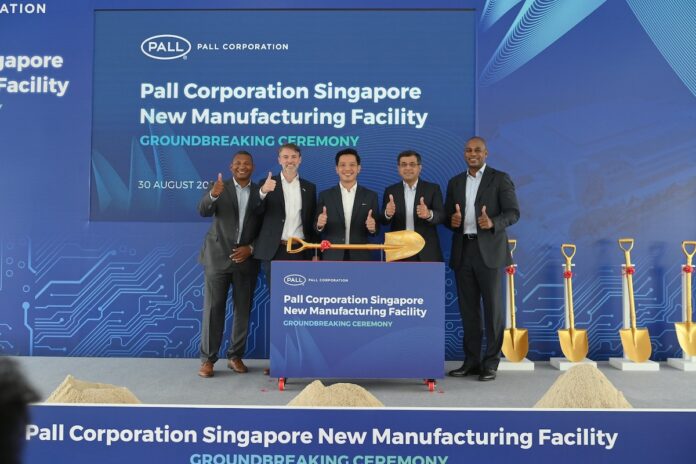Pall, a New York-based provider of filtration, separation and purification technology, recently broke ground for a new US$100 million manufacturing facility in Singapore.
This will provide a boost to the semiconductor industry in the Asia-Pacific region (APAC) amid a global chip shortage.
When fully operational, the new facility is expected to more than double Pall’s current production capacity and strengthen its position in Singapore as a regional and global hub for a $1-trillion industry.
Pall president Naresh Narasimhan said they expect that the region will soon outstrip other markets to become an anchor in the global semiconductor industry.
“Today, APAC accounts for most of the global semiconductor market. With large-scale investments in Singapore — along with Tsukuba, Japan — Pall is well-positioned to offer substantial expertise in advanced node solutions and a vast footprint of technologies to serve the growing demands of chip manufacturers in the region,” said Narasimhan.
The facility will occupy a seven-acre campus that will include more than 18,000 square meters of manufacturing and office space. High-volume manufacturing (HVM) and research and development capabilities are planned to be completed between late 2023 and early 2024.
“The $100 million investment demonstrates Pall’s commitment to help customers meet extremely challenging defect reduction goals amidst a global chip shortage crisis as new technologies, such as 5G, artificial intelligence and automation, evolve and continue to drive transformation,” the company president added.
As 5G networks become more reliable and widespread, high stakes applications for IoT technology have become increasingly central across healthcare, manufacturing, and automotive industries, among others, driving urgent need for advanced semiconductors.
Shangaza Dasent, Pall VP and general manager of Pall’s microelectronics business unit, said that for peak chip performance and energy efficiency, it is crucial that semiconductor chips are manufactured at the highest level of purity, especially in new applications such as automotive and medical devices, where latent defects can be costly and pose potential safety hazards.
“Customers in industries such as telecommunications, deep technology, automotives and transport, rely on Pall’s high-end filtration solutions for each step of the manufacturing process,” said Dasent. “With this new site, we will incorporate advanced technologies into our processes. We will hire 300 new associates in science, engineering and manufacturing.”
















